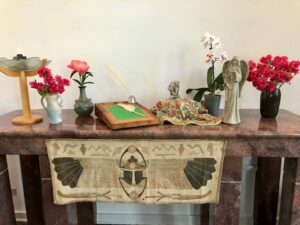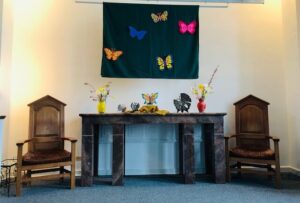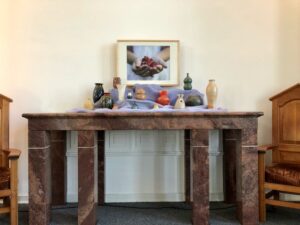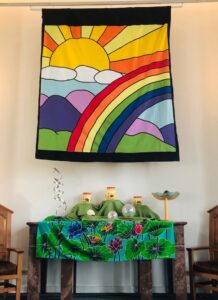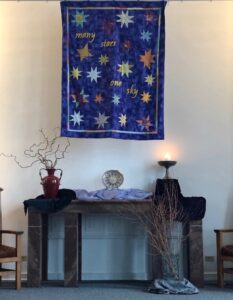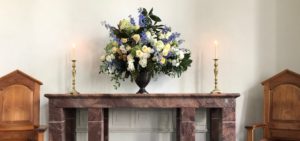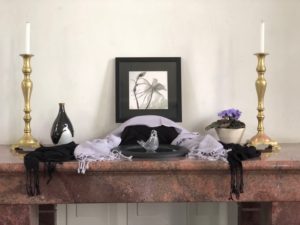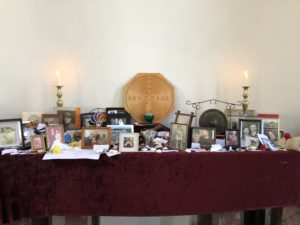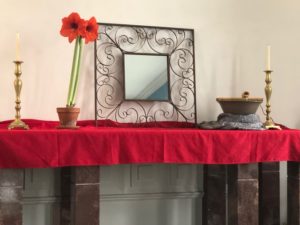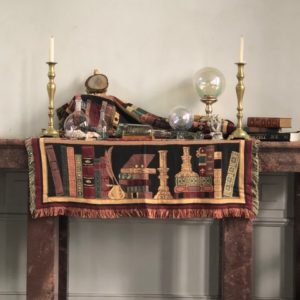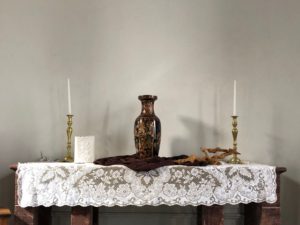“Many Meanings of Freedom” A Sermon marking the 450th Anniversary of the Edict of Torda
This morning I would like to talk about religious freedom, and how that relates to freedom of conscience, and then the distinction of spiritual freedom. Three meanings of freedom, with different opportunities and callings for us today.
RELIGIOUS FREEDOM
Let’s start with religious freedom.
I invite you to consider whether you have encountered in your life a time or place when a religion was mandated by government. In some times and places, this has been a life or death issue.
In our US history, some the colonists in the United States were seeking freedom from religious persecution, and the young nation took a stance of freedom of religion. Unfortunately, that did not mean that in daily life people truly ended all discrimination.
Perhaps, you have you experienced a limit to your religious freedom?
Let me offer some examples from diverse perspectives. Some people in this country believe their religious freedoms are not being respected, say, for example,
-because they are not allowed to lead their students in prayer in public schools,
–because their tax dollars are used for certain medical procedures they find immoral.
— because the theory of evolution is taught in public schools, although it is against some students’ religion.
Another interesting example was in the Charlottesville news recently when Dr. Greg Gelburd attempted to visit a person to provide medical care and was blocked from entry. In the past, Dr. Gelburd has gone on medical missions to help refugees and hurricane survivors, based on his Christian beliefs. Last month, the person he wanted to visit was sitting in a tree in Giles Country as a protest to the construction of the Dominion Pipeline. The people who blocked him were the National Forest employees who said the area was restricted. The Rutherford Institute took up the issue and sued on behalf of Dr. Gelburd, saying his religious freedoms were being violated.
Throughout history, there have been times when one group of people wants to dictate beliefs to another group of people. Usually, this is done for political reasons, which boil down to economic reasons. For example, when Native American children were taken from their homes and sent to Christian missionary schools. Unfortunately, at least one of these schools was run by Unitarians.
By taking away people’s culture and values, it is easier to conquer and take their resources.
But, for the most part, the US government today does not require people to register as a certain faith or declare belief in a certain doctrine. And, we within our Unitarian Universalism, do not require a faith statement before one can become a member.
FREEDOM OF CONSCIENCE
So, this leads to the distinction of freedom of conscience.
While a person might have religious freedom, a person might not act on their conscience. In other words, some religions have strict behavior codes such that a person follows ritual guidelines and group leaders, instead of their inner conscience. One example of this was the book From Housewife to Heretic, in which Sonia Johnson described the journey that led her to leave the Mormon church, also known as the LDS Church, or Latter Day Saints. Her government gave her the freedom to be LDS, but within the group, her freedom of conscience was not welcome. Eventually, she left.
In the reading we did earlier by Francis David, he said: “Conscience will not be quieted by anything less than truth and justice.”
And in the hymn we sang earlier these words: “Thanks be for these, who question why; who noble motives do obey.” The line in the song is saying, thanks for people who question, and who obey noble motives instead of blind rules.
I like that phrase:
Noble motives.
To me that means to obey not whim, not the current trend, but to obey a higher calling.
That is what we teach our children in religious education: a responsible search for truth and meaning.
That is what we do each time we have a congregational vote: people get to vote their conscience.
That is what we do when we have intelligent conversation about our values and then choose a course of action for living them, such as speaking up about national policies.
SPIRITUAL FREEDOM
But, let us look at this from another angle:
I might also venture that under a government that restricts religious freedom, one is not free to act on their conscience, but one may be free in their heart.
Consider the situation in Tibet, in which the Chinese government is limiting the freedom of people to practice Buddhism. But the Dalai Lama continues to find ways to help people understand an inner freedom.
We might say that freedom of conscience happens in the mind,
while spiritual freedom happens in the heart.
Let me try to paint a picture. Let’s imagine a man named Pete. Pete is resting in a bed, cared for by nurses because he is expected to die in the next few weeks. Outside the windows, he sees the birds flying freely, and he smells the scent of spring blossoms floating on the breeze. He knows his daughter Lisa is coming to visit this afternoon, and he is very scared. He has not lived up to his own values as a father and grandfather. He did not support Lisa when she was a teen who became unexpectedly pregnant, but instead cut off contact for many years. He worked long hours building up his business and wealth but has no friends. He regrets that he himself never got help for his alcohol addiction, and now his body is shutting down from liver disease. He wonders what happens after he dies. He wonders if there is any way in these last few weeks of life to make up for the poor choices he has made. They feel so heavy inside, cutting him off from himself, his daughter, and whatever bigger meaning in life there might be.
Now, let’s imagine, in this scene, that his daughter Lisa arrives and they are able to have a sincere, honest conversation. She expresses forgiveness and says she is concerned for his well-being. She encourages him to forgive himself. She says that she has come to understand human frailty—that all of us have suffering, — and yet that we can choose love in each moment. And in that tender conversation, let’s just imagine, that Pete’s heart softens and he is not worried anymore about dying. He relaxes. He is surprised at how peaceful he feels. We could say he experiences spiritual freedom.
This is what humans long for.
This is why world religions tell stories and myths and fables and encouragement and teachings about this of peace that passes understanding.
Even secular literature offers characters who find spiritual freedom: Ebenezer Scrooge experiences joy at the end of A Christmas Carol, and the green Grinch experiences a new community at the end of The Grinch Who Stole Christmas. They had an inner change of heart.
The Buddhists have a word for this. Samadhi.
Liberation from doubt, confusion, bitterness.
It could be when a person finally feels a natural forgiveness after a divorce.
It could be when a college student realizes they don’t need to impress anyone, but can relax into their own skin.
It could be when a person realizes they will not spend energy hating their oppressor.
Spiritual freedom has an energy of light – not only light like the sun, but light like a balloon rising. Spiritual freedom can also have an energy of rest — rest like floating without burdens. The image of a cloud is often seen.
Ideally, our society can be set up so that spiritual freedom can happen without needing to be hidden.
In the Hungarian Unitarian church, they say: “The most important result of the spreading of the Unitarian faith was the proclamation of religious freedom at the Diet of Torda in 1568. It was first declared to the world in Transylvania, that everyone can exercise that religion which agrees with their understanding, because “faith is the gift of God”.
(source: http://unitarius.hu/english/catechism.html. Accessed May 27, 2018)
This is demonstrated in a story from a Unitarian Universalist minister named Rev. Victoria Weinstein, who serves a congregation in Massachusetts. She describes her journey being raised in an atheist family, then as a young adult, having Jewish mentors, and then what happened next She writes: “[Then maybe five or six years later, a terribly embarrassing thing happened.] Jesus got ahold of me. Like when someone’s enraged and ranting and you just wrap your arms around them from behind and hold them—that’s how Jesus got hold of me.
[It happened like a secret romance through years of private study. It really happened when I fearfully accepted an invitation to the open communion table at a meeting of the Unitarian Universalist Christian Fellowship. Everything went Technicolor for me that day, like when Dorothy gets over the rainbow, and I had found my religion. And after I became a Christian, many other religions looked beautiful to me, too. I worked for understanding and I received healing.]I kept my religious beliefs a secret for a long time, because in my experience Unitarian Universalists had such bitter disdain for Christians I didn’t want to be considered a heretic by the heretics! How marginalized can you get? My experience with Unitarian Universalists was that everyone was happy to have you search, but you weren’t actually supposed to get anywhere specific.
Not a year goes by that I am not asked by half a dozen UUs why I am still here as a Christian—and not nicely, either. I joke, “This is where my free and responsible search for truth and meaning has led me. If it upsets you, imagine how I felt!”
(Source: https://www.questformeaning.org/quest-article/free-and-responsible/)
To wrap up this sermon, let us consider the quality of each freedom and what we do to cultivate it.
The quality of religious freedom is that it is something very solid and visible. It exists within legal systems and courts and declarations. It often lasts for centuries. You can preserve it by voting, lobbying, and recording public decisions.
The quality of freedom of conscience is more intellectual and individual. It occurs as a deep knowing within a person. But, it is still acted out in visible ways through conversation, consideration and action. An act of conscience can take a few minutes, days, weeks, or years. You can preserve it by keeping a keen mind and surrounding ourselves with intelligent reflection.
The quality of spiritual freedom is the most ethereal and is sometimes fleeting, and yet it floods a person with an unmistakeable deep peace in their soul. Those who experience it may remain silent, but others who witness them see the soft forehead, clear eyes, and easy smile. You can preserve it by doing spiritual practices that cultivate faith, hope, and love.
Freedom of religion does not mean that one has spiritual freedom.
Spiritual freedom does not mean that one has freedom of religion.
One is outer,
One is inner.
We do not always have control of our outer environment, but we can strive for liberty.
We do not always have control over our inner environment, but we can be open to grace.
Blessed be,
Amen


